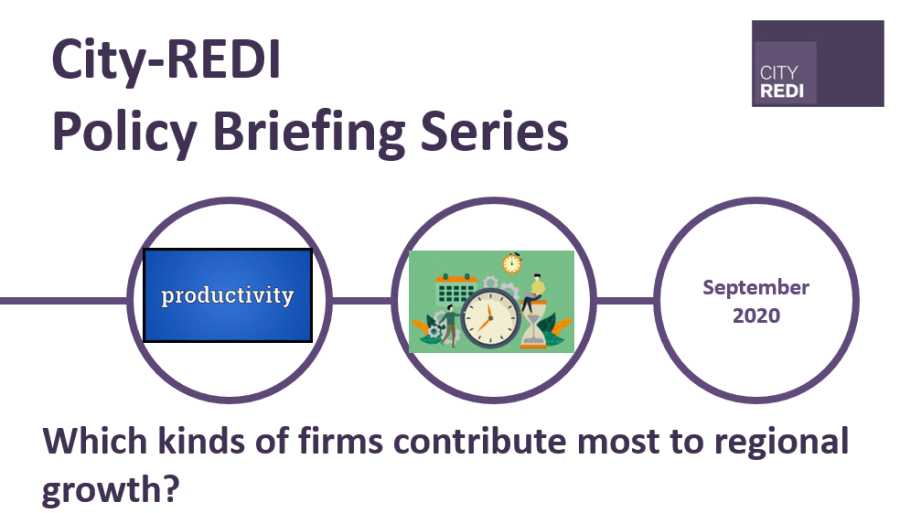In this policy briefing, Dr Fengjie Pan and Professor Simon Collinson look at why some firms and sectors make a larger contribution to local and regional economies than others.
Many City-REDI projects aim to help policymakers optimise the use of scarce public resources to promote economic growth and wellbeing locally and regionally. Some of these policies are targeted at helping improve productivity, innovation and competitiveness in local firms because this drives regional economic growth, investment, employment and resilience.
Our regional ‘Productivity and Prosperity’ project focuses on identifying the barriers to improving productivity and innovation across four sectors that are key to the health of the regional economy. It has also revealed important differences in the levels of ‘embeddedness’ or interdependence between firms and their host regions. Some firms and sectors make more of a contribution to local and regional economies because of the structure of their local value chains.
These findings are relevant for policymakers looking to support businesses that are particularly important to the growth of the region as a whole.
Summary and policy recommendations
The success of firms and regions is interdependent and reciprocal…
- Firms tend to be more competitive and perform better if they are located in regions that have good infrastructure, skills, suppliers, customers and support for innovation.
- Regions grow faster and are more resilient in the face of economic shocks if they host strong, competitive and innovative firms.
But, regional growth depends more on some kinds of firms than others …
- The regional impact of any firm is related to both its size and its local embeddedness – that is the proportion of its assets and employment in the region and how much it buys and sells to other firms or customers in the region.
- Our survey of 300 businesses in the West Midlands region, covering four sectors, has shown that firms in Hospitality and the Business Professional and Financial Services (BPFS) sector are more embedded in the region, with a larger proportion of local suppliers and customers than those in Retail and Advanced Manufacturing.
Policymakers need to consider this and other evidence to improve the targeting of interventions and support to benefit firms that contribute most to local growth.
Download a copy of the policy briefing.
This blog was written by Dr Fengjie Pan and Professor Simon Collinson – City-REDI / WM REDI, University of Birmingham.
The Productivity and Prosperity research team consists of Dr Magda Cepeda Zorrilla, Professor Anne Green, Dr Chloe Billing, Dr Fengjie Pan and Professor Simon Collinson.
Disclaimer:
The views expressed in this analysis post are those of the authors and not necessarily those of City-REDI or the University of Birmingham

